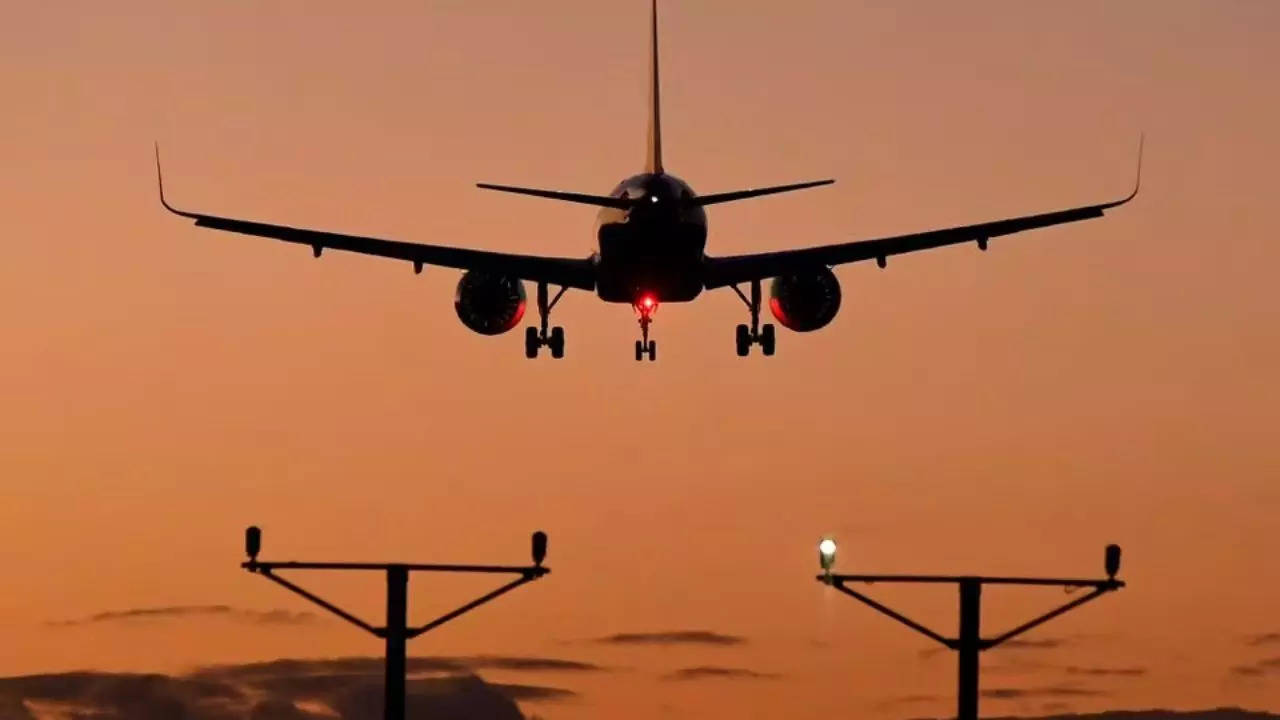NEW DELHI: A transatlantic flight powered only by alternative fuels has taken off, BBC reported.
The flight was operated by Virgin Atlantic from London to New York using alternative fuels.
According to the report, this is the first time a large passenger plane is making a transatlantic journey with only eco-friendly fuels.
The idea reportedly of this government supported project is to show that planes can fly in a greener way.However, there are still challenges, like not having enough of these eco-friendly fuels and needing more technology to meet emission goals.
The flight is a one-time thing and did not have paying passengers. They used sustainable aviation fuels (SAF), which can be made from different things like crops, household waste, and cooking oils.
The plane, a Boeing 787, was filled with 50 tonnes of SAF, mostly from waste fats and some from leftover materials from corn production in the US.
The Civil Aviation Authority in the UK approved the flight after tests. Companies like Rolls-Royce and BP were part of this project.
Though planes using SAF still produce carbon, the fuels can reduce emissions by up to 70%, according to the the Civil Aviation Authority in the UK.
Virgin Atlantic’s CEO, Shai Weiss, said this flight is “proving… that fossil-derived fuel can be replaced by sustainable aviation fuel”.
“It’s really the only pathway to decarbonising long-haul aviation over and above having the youngest fleet in the sky. It is a really momentous achievement,” BBC quoted him as saying.
However, he said there was not enough SAF currently, and added that due to the fuel being more expensive, flight prices would end up being higher.
Virgin founder Sir Richard Branson admitted it was “going to take a while” before there was enough SAF for everybody to use.
“But you have to start somewhere,” he told the BBC. “And if we didn’t prove it can be done, you would never, ever get sustainable aviation fuel.”
SAF is already used in small amounts, blended with traditional jet fuel. It’s less than 0.1%, and planes can only use up to half of it mixed with regular fuel. Additionally, SAF is more expensive than kerosene.
In the UK, there are no special plants just for making this eco-friendly fuel yet. But the government wants to have five of these plants working by 2025.
Airlines see the first long-haul flight of a large passenger plane using 100% SAF as a significant milestone. But experts say such fuels are not a magic bullet, BBC reported.
The flight was operated by Virgin Atlantic from London to New York using alternative fuels.
According to the report, this is the first time a large passenger plane is making a transatlantic journey with only eco-friendly fuels.
The idea reportedly of this government supported project is to show that planes can fly in a greener way.However, there are still challenges, like not having enough of these eco-friendly fuels and needing more technology to meet emission goals.
The flight is a one-time thing and did not have paying passengers. They used sustainable aviation fuels (SAF), which can be made from different things like crops, household waste, and cooking oils.
The plane, a Boeing 787, was filled with 50 tonnes of SAF, mostly from waste fats and some from leftover materials from corn production in the US.
The Civil Aviation Authority in the UK approved the flight after tests. Companies like Rolls-Royce and BP were part of this project.
Though planes using SAF still produce carbon, the fuels can reduce emissions by up to 70%, according to the the Civil Aviation Authority in the UK.
Virgin Atlantic’s CEO, Shai Weiss, said this flight is “proving… that fossil-derived fuel can be replaced by sustainable aviation fuel”.
“It’s really the only pathway to decarbonising long-haul aviation over and above having the youngest fleet in the sky. It is a really momentous achievement,” BBC quoted him as saying.
However, he said there was not enough SAF currently, and added that due to the fuel being more expensive, flight prices would end up being higher.
Virgin founder Sir Richard Branson admitted it was “going to take a while” before there was enough SAF for everybody to use.
“But you have to start somewhere,” he told the BBC. “And if we didn’t prove it can be done, you would never, ever get sustainable aviation fuel.”
SAF is already used in small amounts, blended with traditional jet fuel. It’s less than 0.1%, and planes can only use up to half of it mixed with regular fuel. Additionally, SAF is more expensive than kerosene.
In the UK, there are no special plants just for making this eco-friendly fuel yet. But the government wants to have five of these plants working by 2025.
Airlines see the first long-haul flight of a large passenger plane using 100% SAF as a significant milestone. But experts say such fuels are not a magic bullet, BBC reported.
